Partners Unite to Ensure the Sustainability of School Feeding in Mozambique
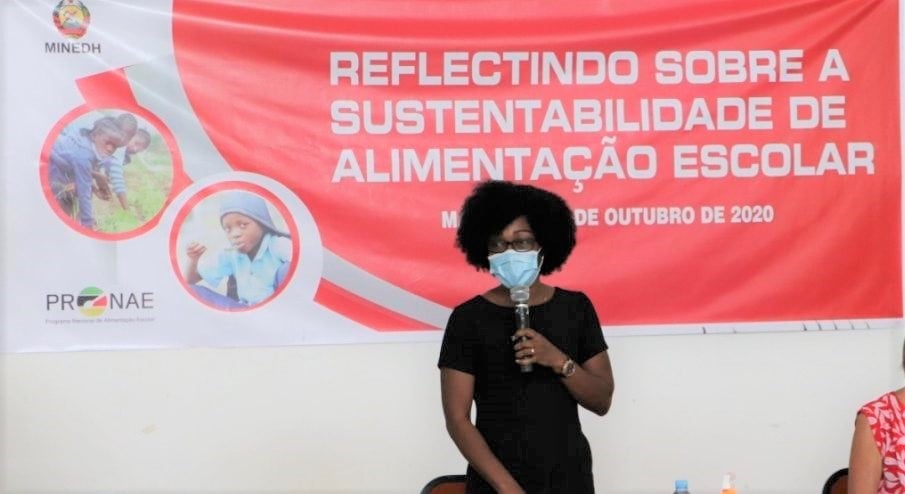
Mrs. Arlinda Chaquisse, National Director of Nutrition and School Feeding (DNUSE) of MINEDH speaking to participants at the recent Sustainability Conference organized by Planet Aid / ADPP in partnership with the Government of Mozambique.
The Planet Aid McGovern-Dole-funded Food for Knowledge (FFK) project, implemented by ADPP Mozambique in partnership with the Ministry of Education and Human Development (MINEDH), welcomed national school feeding partners this month in a conference to address the long-term sustainability of school feeding in Mozambique.
Initiated by the FFK project leadership, in collaboration with MINEDH and co-sponsored by World Vision, the conference's main purpose was to launch an official coordination platform to advance activities towards a sustainable national school feeding program. The event was hosted by ADPP Mozambique, which has implemented the FFK program in Maputo Province since 2012, most recently providing daily school meals to over 90,000 students in 271 schools in Maputo Province.
The project has accompanied the formalization of school feeding by the Government of Mozambique since the creation of the national school feeding program, PRONAE, in 2013. Since that time, FFK, World Vision, and other school feeding partners have worked with MINEDH to support, solidify, and expand the program. A critical step to ensure that national resources are allocated to sustain and expand school feeding is working on the adoption of a national school feeding law by the Government of Mozambique. In formalizing the coordination of partners and the government, the conference represented a significant milestone in achieving these goals.
Conference participants included national and provincial representatives from MINEDH, local and international partners including ADPP, World Vision, the World Food Program (WFP), Joint Aid Management (JAM), ADRA and CESC, and Ministry of Education partners UNICEF, Finland, and Canada.
In opening comments, Birgit Holm, Executive Director of ADPP, spoke of the significant efforts made by partner organizations to advance a national feeding program in Mozambique, and the formal coordination needed to advance those initiatives in partnership with the government. "We are currently implementing school feeding activities in a decentralized manner... and the lack of coordination can weaken our initiatives. We intend to establish a platform that allows for a common agenda to advocate with the government for the creation of a school feeding law that ensures short and long-term sustainability," she said. Pedro Mortara, representative of WFP, also reinforced the need for organizations to improve coordination and to reinforce school feeding activities that strengthen the educational sector at the national level.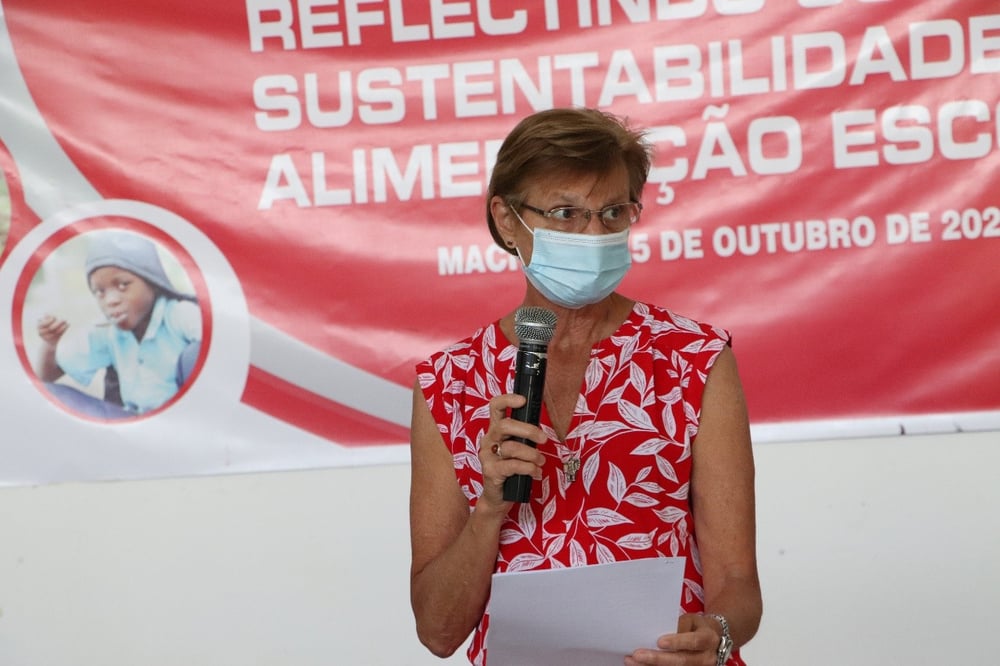
Birgit Holm, Executive Director of ADPP Mozambique remarks on the need to coordinate efforts towards sustainability.
Representing the event's co-sponsor, World Vision, Manuel Januario presented the main steps for the group to advocate for a school feeding law and the inclusion of a budget line in the national budget. The government's commitment to the expansion of school feeding through PRONAE is outlined in the MINEDH's Strategic Education Plan (2020-2029), stating "A proven strategy to fight the biggest challenges in the education sector, such as access, participation, retention, and equity - is implementing school feeding and nutrition programs."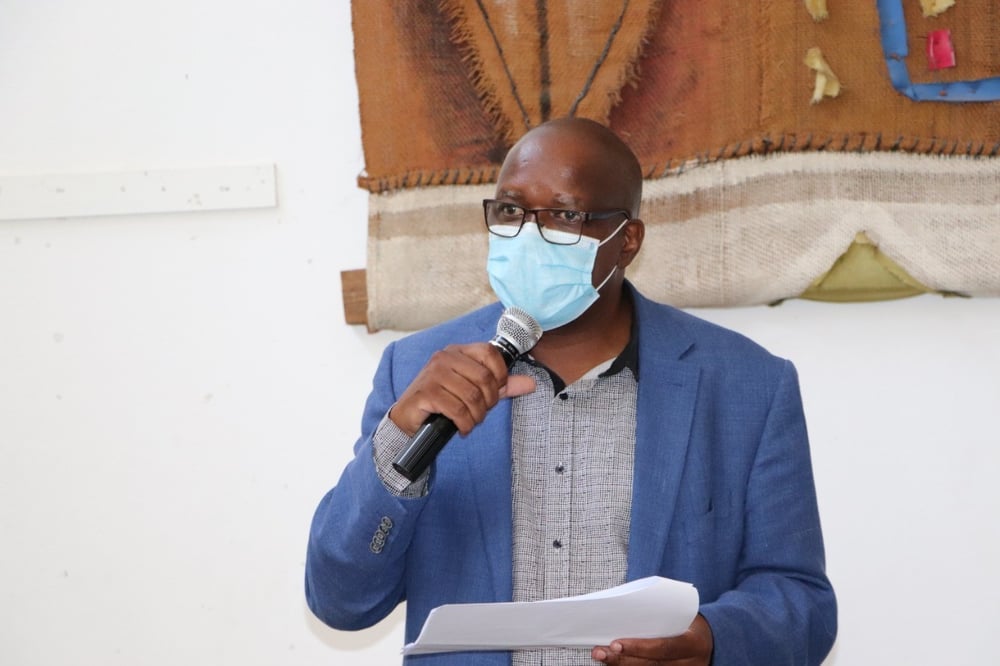
Manuel Januario, representing World Vision, outlines the group's main activities.
Mrs. Arlinda Chaquisse, National Director of Nutrition and School Feeding (DNUSE) of MINEDH, reiterated this commitment and urged the collaboration of partners and MINEDH to achieve sustained national school feeding. "As representatives from MINEDH, we reiterate our commitment to these and other initiatives that support the sustainability of school feeding," she said.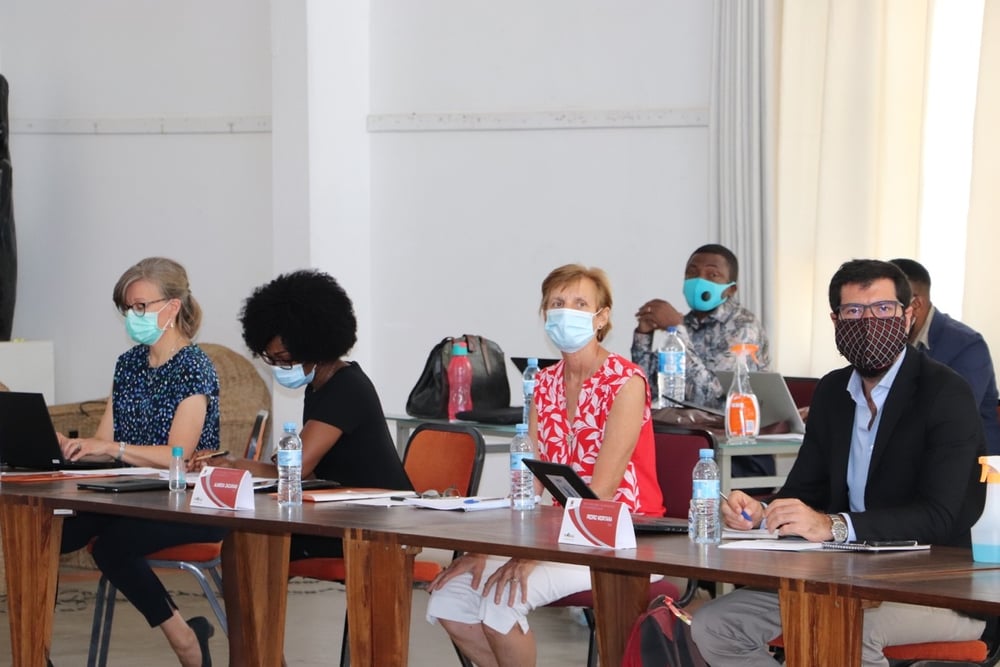
Representatives of the Finnish embassy, MINEDH, ADPP, and WFP.
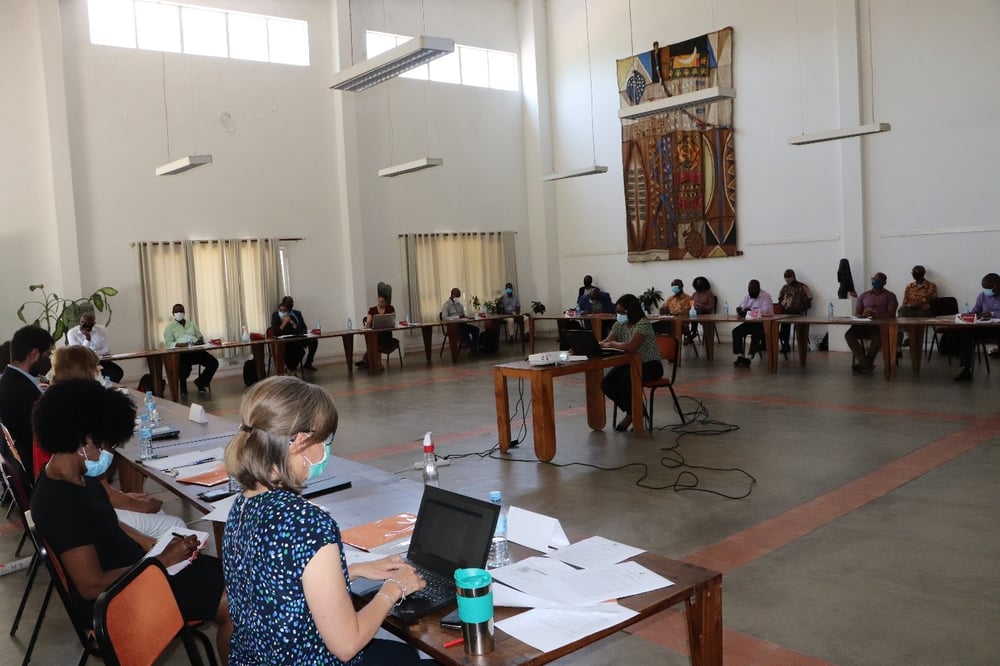
Participants at the Sustainability Conference hosted at ADPP Headquarters in Maputo.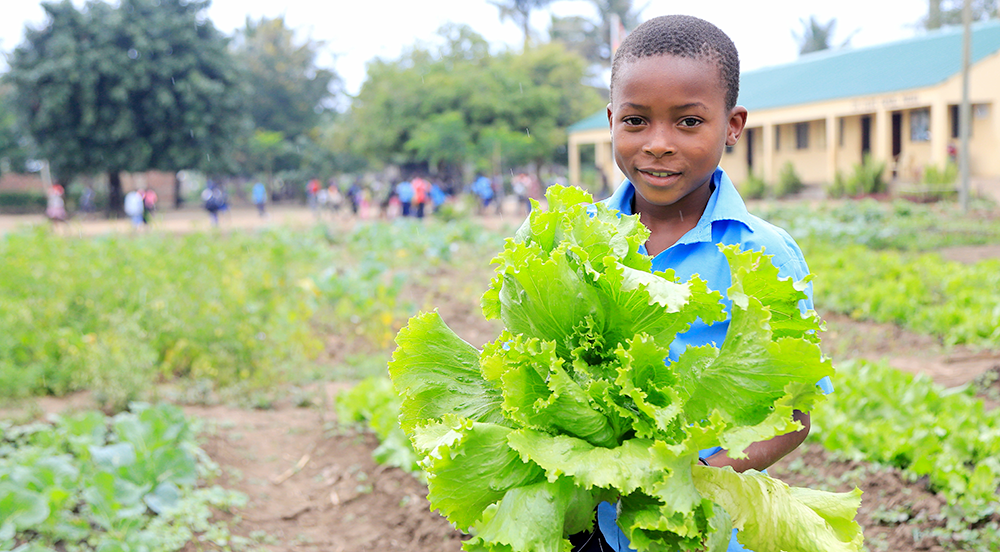
The large-scale local production of food through Home Grown School Feeding Gardens (HGSFGs) is an integral part of the Planet Aid FFK Program and a key component to ensure school feeding sustainability, in line with the Government of Mozambique's strategy for a national program.
